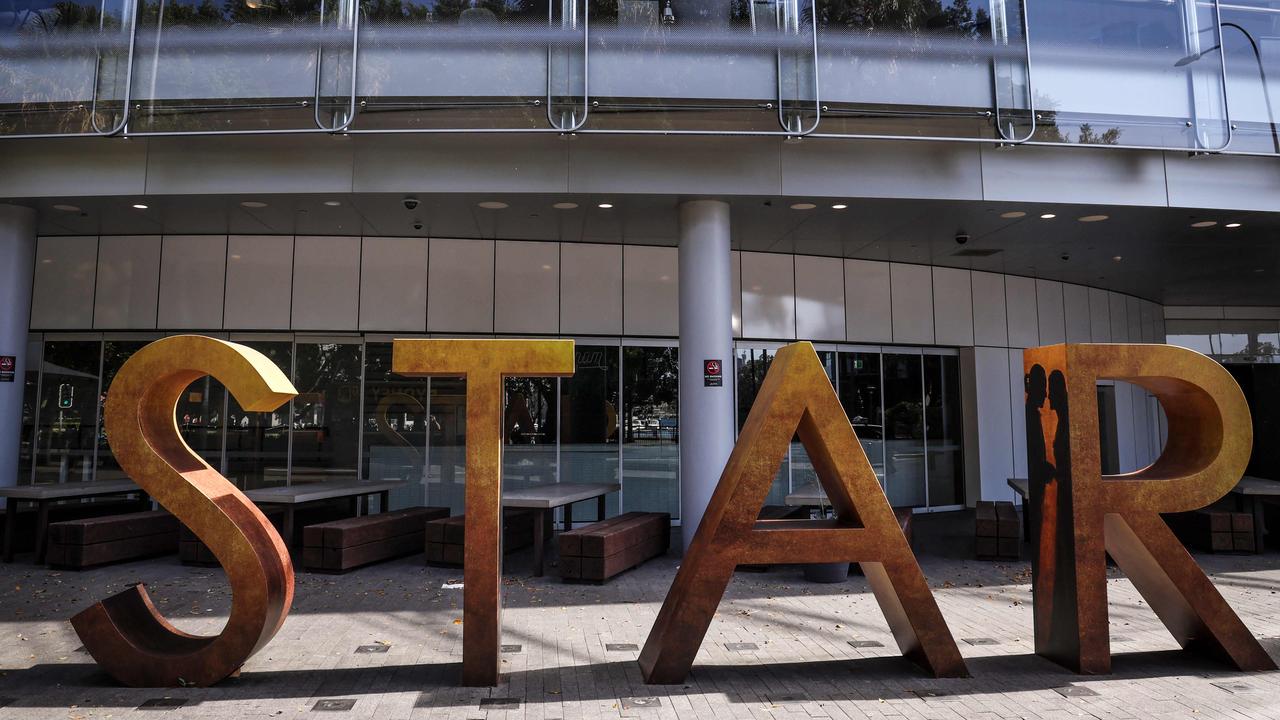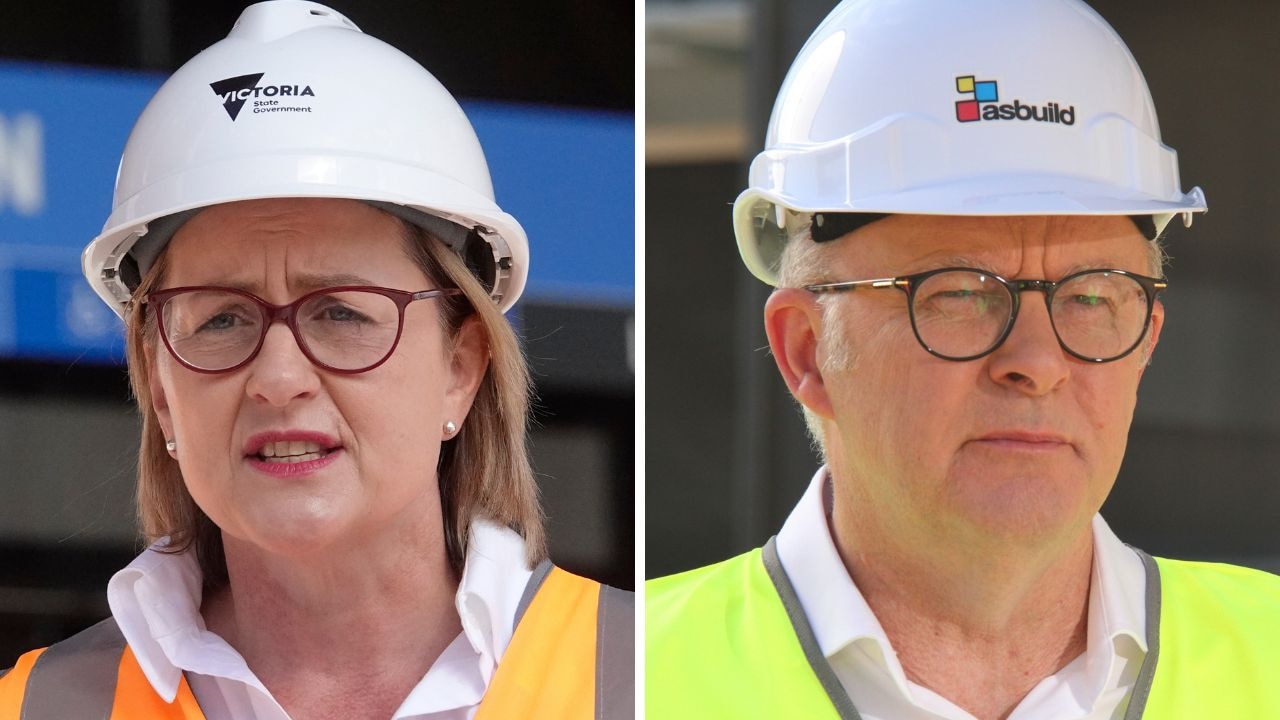‘You can’t manage Fred’: Finder founder Fred Schebesta’s crypto plans
As the flamboyant founder of Finder, Fred Schebesta hit rock bottom, but friends and some Jordan Peterson advice led him back to steer his fintech towards a crypto future.
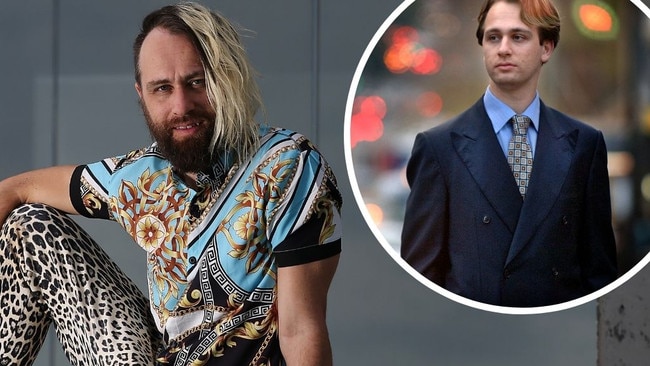
It took 2½ years of suffering and up to $30,000 a month of lawyer’s fees for Fred Schebesta’s divorce to become official in December 2015.
He admits he did some “dumb things” as he visited dark and destructive places during that period before hitting rock bottom.
There were tears, anger and the sadness of thinking what it meant for his two beloved daughters. It took him another 2½ years to give up alcohol after a detox diet went horribly wrong, leaving him feeling gravely ill.
“I have enough energy, I don’t need to add more to the tank. You already have a firework, you don’t have to make it bigger. Alcohol was something I could just remove. It has saved me money, given me more time and made me healthier,” he says.
“I remember after giving it up I went to this charity dinner, I was dressed pretty flamboyantly. A guy said to me, ‘I was watching you all night and you didn’t have a single drink’. People are watching. I want to be my authentic self and I just don’t think it helps.”
The former Pizza Hut call centre operator-turned Macquarie University Bachelor of Finance graduate. who now has an estimated net worth of over $210 million, is the very public and flamboyant face of online financial comparison website Finder.
He and his schoolmate Frank Restuccia, who both attended the academically selective Sydney Grammar School, founded Finder in 2006 after five years earlier founding and selling a digital marketing business called Freestyle Media.
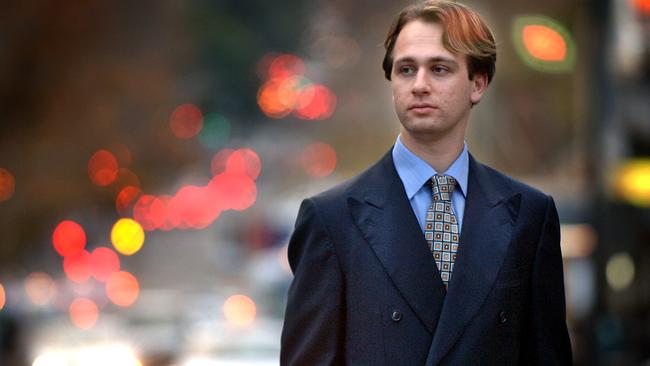
In 2012 Finder evolved into a financial comparison site to help its customers choose an insurance provider, bank, mobile phone provider or even an online store to give them the best deal.
But three years later, Schebesta’s divorce and his downward spiral had the firm at the cross roads.
The company’s chief operating officer, Jeremy Cabral, who was given 10 per cent of Finder when he joined in 2009, says he and Restuccia gave Schebesta time and space to work through the things that were important to him.
“That’s all we really expect of each other. There are going to be moments where you need that time and space. It’s a pretty intense thing we’ve all committed to. So making sure that we have sufficient time for recovery, to re-energize and always be at our peak performance is really important,” he says.
Restuccia says at the time he worked “super tight” with Cabral to just keep Finder moving forward.
“Finder hasn’t been a straight line up to the right. It’s been a squiggly line up to the right. That’s made us really appreciate what we have and what we have built. It is just a real deep appreciation for each other. I would call it a love for each other that goes beyond just business,” he says.
Crypto dreams
While Finder has traditionally been known as one of Australia’s most visited comparison sites, in recent years the fintech is reinventing itself as a global crypto educator and enabler, employing over 450 staff in 80 countries.
Schebesta invested in Bitcoin in 2017 when it was just $4,000 and has bought cryptocurrency tokens in Balthazar, a platform that enables investors to make non-fungible token (NFT) blockchain money by playing video games.
Last year Finder launched its first crypto product known as Finder Earn, a crypto-based competitor to bank deposits, offering its users a 4 per cent return to exchange Australian dollars for “stablecoins” linked to the currency.
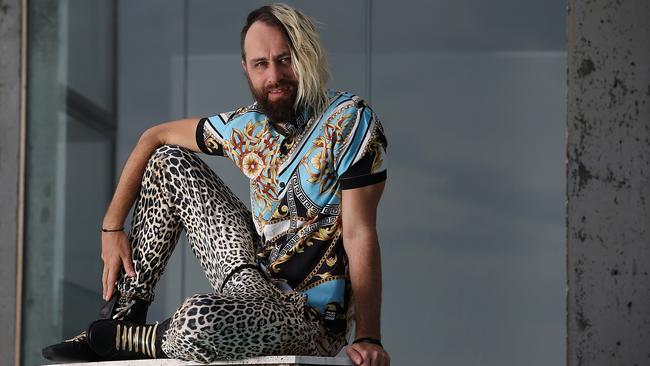
Finder has since used the cash it raised from its customers to invest in global crypto markets.
When the Reserve Bank recently hiked mortgage rates 0.25 per cent, Finder increased its yield on the Finder Earn product from 4 to 6 per cent for May and June.
Schebesta says the product is “pumping” and indicative of Finder’s transformation into a product and technology company.
Its personal financial management app, which allows customers to scan their bills and automatically checks to see if they could save money and was last year launched in America, is on track to have 1 million users by the end of 2022.
The app also gives users a credit score, showing which loans or credit cards they’re most likely to be approved for.
He says the firm is now looking at launching new crypto-enabled products in the lending market — specifically the Finder app will be adding an additional 30 coins to its crypto trading feature, starting from late next month.
“You can imagine we are going to leverage cryptocurrency and bring it to the everyday person . . . Making it simpler in terms of borrowing money. So not having to do a credit check, because you’re already collateralised from your crypto or your folio,” he says.
“We see ourselves as that bridge between the web 2.0 and the web 3.0 world. Bringing the everyday consumer on that journey. It is quite difficult and we want to make it more accessible, easy and simple. To be able to get the benefits that crypto can bring.”
Despite the current challenges in crypto markets, he still believes Australia has a once in a 100 year opportunity to lead the world and be the hub that attracts investment and talent in the crypto sector.
“I think high level, like really zooming out on a macro scale, not betting on crypto will be like not betting on the internet in 96-97. Our yield product, it’s exploding, going so well. People are taking risk off. They want to find yield,” he says.
“In terms of market size, its still pretty small. I think it’s still just beginning.”
Restuccia says the prospect of a consumer having a digital wallet is still a new thing and while crypto is growing rapidly, it’s still very much in a “nascent form”.
“So I think we are on the cusp of seeing that early phase in the innovation curve. Where people start to really take heed and see what the possibilities are for them to help them make everyday decisions,” he says.
Show me the money
Finder last year raised its first external equity at a $650 million pre-money valuation in a $30m capital raising backed by Future Now Capital, a Sydney-based fund that evolved from the family office of entrepreneur John Orrock.
Restuccia says the funds are being used on engineering to build more product for more people around the world and on marketing.
Schebesta said in April last year that Finder was considering an initial public offering at some point in the future and he says this remains the longer term plan for the firm, albeit a slump in technology valuations in recent months mean it is unlikely to happen any time soon.
“Traditionally, unfortunately, the ASX has been quite anti-crypto. But I think that’s changing. I’m bullish for that. So I think hopefully, in our IPO timeline, things might change.”
But he says alternative markets for a listing are also opening through cryptocurrency.
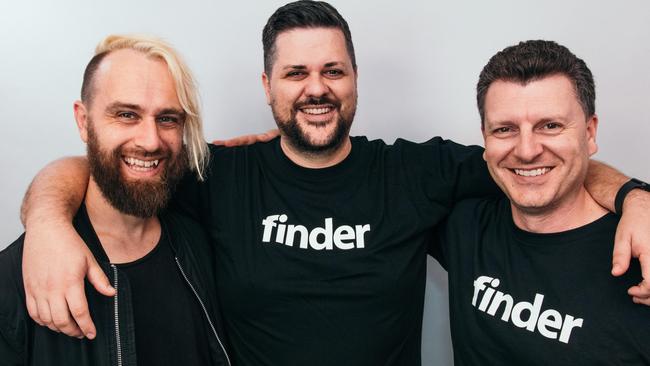
“It could be some security tokens or something like that. There are structured ways to go about it. It’s pretty much like an S1 with the SEC,” he says, in reference to the SEC filing mechanism used by companies planning on going public to register their securities with the U.S. Securities and Exchange Commission.
“With security tokens, I think there’s going to be some movement there. It’s an interesting space. It has been kind of the wrong time, when some of the laws weren’t quite clear, but I think they are going to get a bit clearer.”
His says the key to the success of his partnership with Restuccia and Cabral has been an acceptance and understanding of each being different. As a result, he says no one feels threatened by another.
“We all bring something unique. From my perspective, it is just an acceptance to take risks, make mistakes and be comfortable about that,” he says.
“We’ve also had some pretty good, defined roles throughout time. That’s probably been a hallmark as well.”
‘You don’t manage Fred’
He describes Restuccia, who is Finder co-CEO, as the “real leader” of the firm. COO Cabral, he says, “pulls everything together and makes sure it all actually happens.”
“Then I sort of throw in crazy and whacky ideas that some sometimes kind of work and sometimes don’t. I do things quite differently and that’s probably pretty frustrating and annoying for a lot of people. But I think Frank and J (as he calls Cabral) sort of somehow put up with,” he says.
Restuccia is clear on one thing about his colourful co-founder: “You don’t manage Fred.”
“Fred brings so much to our organisation. He will always bring that innovation. Some might not work out but then you are going to have one extremely powerful idea which no one in the world would ever think of,” he says,
“Then he’s also got the ability to act on that and actually deliver on it as well.
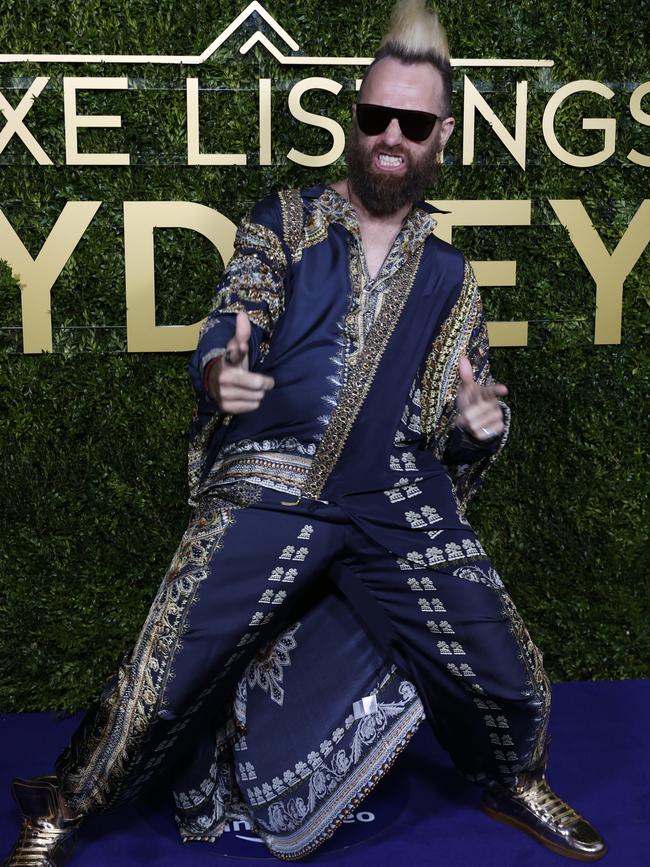
“That eccentric nature of Fred brings a lot of fun and joy to the work.
Obviously, we have some words here and there. But we’ve all worked really hard on our own personal growth.”
Cabral ascribes the success of Finder to connection with his co-founders “that’s incredibly special and unique.”
“To achieve what you’ve achieved, it takes all of you. It’s about deeply understanding each other, and what matters to each of us as individuals. I don’t think you could explain it any other way. It’s a very strong connection between us, a very close bond to allow us where we want to go. The shared vision of really helping the world make better financial decisions,” he says.
Headline maker
Schebesta has built a strong traditional and social media profile in recent years and has made headlines with his property purchases, first spending $4 million on an apartment in Sydney’s beachside Tamarama in 2018 and last year upgrading to what he calls his South Coogee “castle”, which he bought for $16.8m.
“I have built a character and social media loves that character. Having a personal brand, and J talks about this a lot, it is kind of a differentiator for us. There are lots of organisations in this space that are a website or an app. There is no actual person. It is kind of branding for us, ‘here is something different to look at’,” he says.
He will never forget a sage piece of advice given to him by the famed Canadian psychologist Jordan Peterson about how to supercharge success.
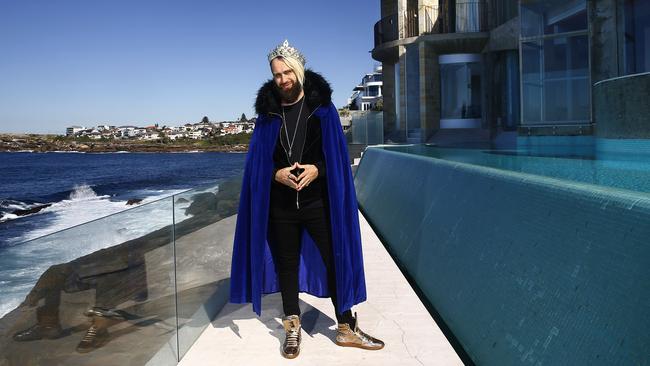
Peterson told him to write down five things he could stop doing today that would help him achieve his goals.
One was drinking alcohol. Another was lying on the couch and eschewing exercise. A third was having a fear of making mistakes.
These days the now 40-year-old has taken on a life coach and says he is more “OK” with having “uncomfortable conversations.” He is also now a regular runner and has employed a personal trainer.
Being the first member of his family and any of his friends to be divorced, he says “the engine was pretty explosive” but there was still a “firm grip on the wheel” during those horror years.
“Sometimes steering a little bit off, I just needed someone to give me some straight chat. There were just times where I was a bit of a mess. I really handed over a lot of the responsibility of the organisation to J and Frank, and they held the wheel tight and drove it well,” he says.
“I think that has sort of carried on to today. I’ve come back and been given the space to be creative. I’m just grateful to get another chance.”





